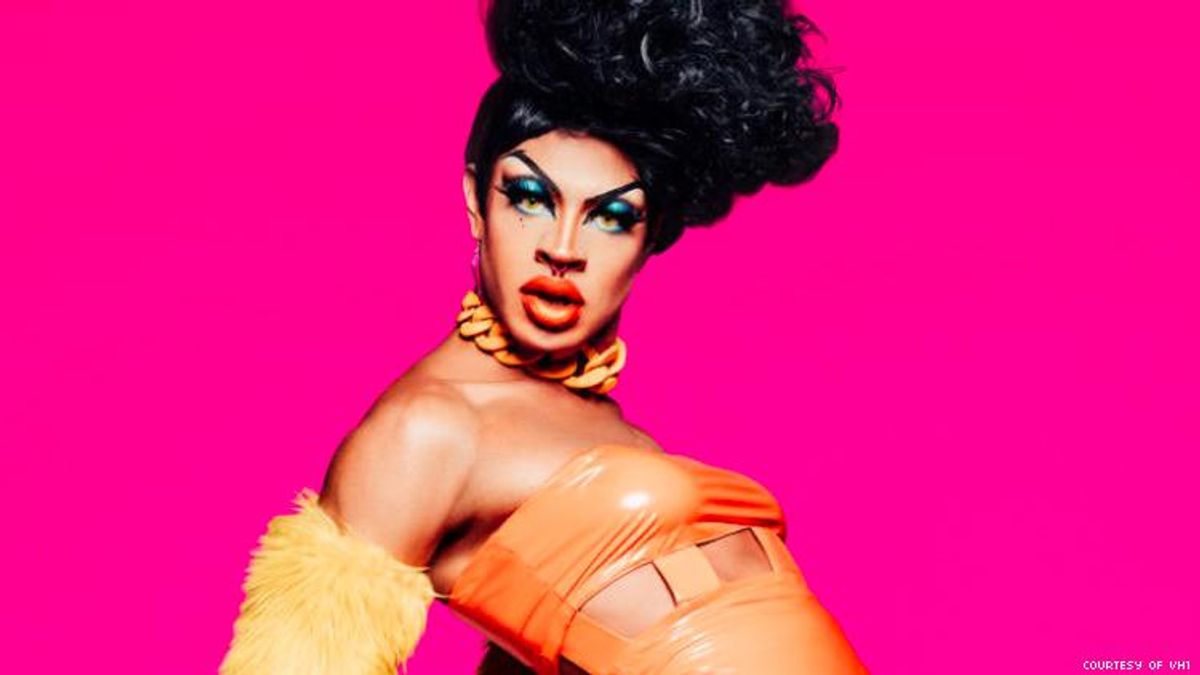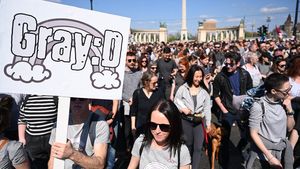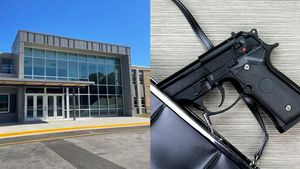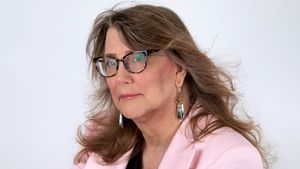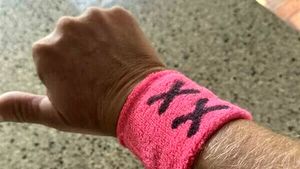For the past two weeks of RuPaul's Drag Race, contestant Yvie Oddly discussed a physical condition she has -- a specific type of Ehlers Danlos Syndrome, a disease that causes hyper flexibility due to a lack of collagen production. At one point on the show, Oddly pulled at the extra skin on her scalp and face to explain how the disease manifests on her body, and in last week's episode, she had to wear crutches after performing, because she expressed that her entire body was in pain.
Here, the Denver-based queen talks more about her condition, how she discovered it, and how it could affect her drag in the long run.
I really badly didn't want to bring up my disease. Maybe it's just because I'm hyper competitive, but I didn't want to make it clear that I had any sort of weakness holding me back. Drag in general is a lot of pain, a lot of sweat, blood, and tears and I didn't feel like bringing it up would paint me in a good way with my sisters. For example, it might be like I know we're all sore after this crazy dance challenge we did, but I'm more sore because I have a disease that makes me hurt. It's not because I'm ashamed of it, but there is this tendency of people to kind of write off or discredit invisible disability.
The condition I have is called Hypermobility Ehlers Danlos Syndrome -- it used to be known as Ehlers Danlos type 3, but I guess that's out of fashion now. There is still a ton of research being done on it, but it is highly believed to be an inherited disorder -- however, it can also just come from specific genetic mutations. When we first got this diagnosis, my parents and I were trying to figure out whose side this was actually coming from, and we're still kind of inconclusive. Yes, my mom is pretty flexible, but I'm the only one to ever be diagnosed.
I've always been in pain as early as I can remember, and I simply thought it was growing pains. We wrote it off as such at first, but it was just so bad that I couldn't make it through a school day from the pain or I'd come home in tears. I had to pull out of every extra curricular activity I have ever done because the pain was getting far too much to handle. So, we went to the doctor and we did some genetic testing which wasn't necessarily conclusive -- my specific type of Ehlers Danlos doesn't have a genetic test. We just had to guess whether it's this or a few other, different things.
At the time of my diagnosis, I was really passionate about gymnastics. It goes without saying, that kind of sport is very physically straining and it's specifically hard on all of your joints -- constantly taking these massive amounts of force. At first we didn't even realize that gymnastics was exacerbating the issue: It is normal for a kid to be very tired after that kind of workout, because it takes a lot of energy, but after practice or meets I would be knocked out for days on end. So when I pulled out of gymnastics, we thought the pain would go away but it got to the point where even just going to school and walking around all day would leave me exhausted. When I was 15, it got so bad that we went to the doctor and we came to this conclusion.
There unfortunately is no cure for Ehlers Danlos. There is no real treatment for it, either. I'm currently trying to take glucosamine supplements to help strengthen my joints to make sure they're not always grinding down, but other than that and physical therapy, the only thing that's recommended for people with my disease is to basically stay inactive.
That's been the hardest part of living with this disease. I love to be active. I was passionate about being a gymnast. When that was taken away from me, I fell into musical theater -- I wanted to find any way I could perform. But even now, I know I eventually won't be able to perform at the capacity I currently am. Every year, I lose another set of skills that came easy for me the year prior. I know eventually I'm either going to have to stop doing all of my crazy exhaustive acrobatic performances or I'm going to...I just know that I'm going to have to stop.
On the show I sprained my ankle and for people with HEDS, that or dislocation of joints is a super common occurrence. I don't experience this myself, but a lot of people bruise extremely easily, because the lack of collagen means our skin just takes a beating. And honestly, this happens for people who aren't doing stunts on stage -- there are so many times where I've slept wrong and dislocated my shoulder.
I'm in extreme pain for pretty much an entire day after something like that happens. For people with HEDS, our bodies are constant, and it's a struggle to keep them pieced together. We really do have to monitor the way we sit or stand, the way we lie down. Everything we do is a risk of injuring ourselves.
That means daily maintenance is important. I take Epsom salt baths every day. I ice my joints and I heat them. Icy Hot is my best friend. Mostly, I just require a lot of rest. When I'm not out at a gig, I really don't have a whole lot of energy to keep moving up and around so I focus all my energy on crafts or projects that I can do from a sitting or lying position.
Before the show, I had known maybe one or two people in my whole life who had Ehlers. Speaking about it even just briefly has opened me up to the fact that there are so many people struggling with this or with other invisible disabilities, and I never realized there was such a major community of people. We're called Zebras, because there's an old adage that says if you hear footsteps, assume it's horses, not zebras. But we're called Zebras because, with our disorder, people would write it off as all these other different things and never really suspect that there was a deeper issue underneath. Thankfully, I've finally found so many fellow Zebras out there. -- as told to Mikelle Street
RELATED | Nina West Tells the Full, Horrifying Story of Homophobia at College
